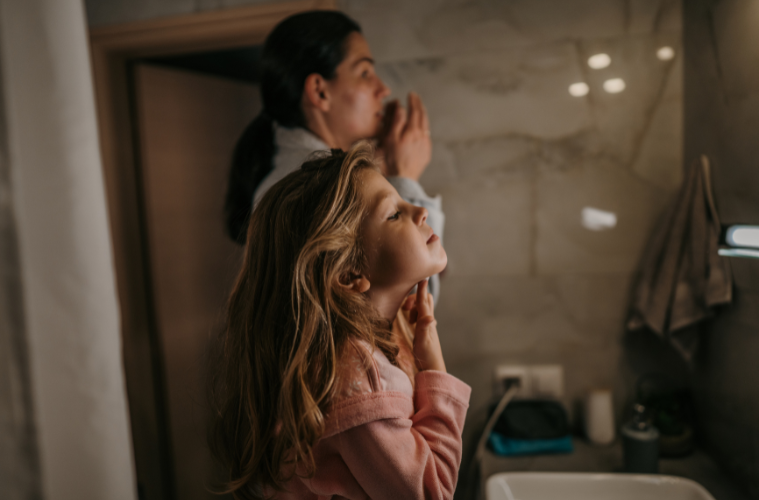In our fast-paced world, many of us race through the day, only to crash at night without giving our minds and bodies the time to properly unwind. A mindful evening routine can transform how you sleep, manage stress, and even how you wake up. Rather than ending your day in front of a screen or thinking about tomorrow’s to-do list, building a calm, intentional routine can help you reconnect, reset, and rest.
Here’s how to build a mindful evening routine that actually works and sticks.
1. Set a Consistent Wind-Down Time

One of the first steps to building a mindful evening routine is choosing a regular time to start winding down. This doesn’t mean you need to go to bed at 9:00 PM sharp, but your body does benefit from predictability. About an hour before your intended bedtime, start shifting into your routine. This will train your brain to recognise when it’s time to slow down.
Tip: Set an alarm or notification on your phone to remind you to start winding down. Over time, your body will begin to naturally follow the rhythm.
2. Ditch the Devices (or Use Them Intentionally)
Screens are the biggest enemy of mindfulness before bed. The blue light from phones, tablets, and TVs can interfere with melatonin production, making it harder to fall asleep. Just as importantly, the content we consume in news, emails, or social media, can trigger stress and overthinking.
If you’re not ready to go screen-free, try switching to mindful content: a guided meditation app, calming music, or an audiobook.
Better still: Keep devices out of the bedroom altogether, and replace screen time with more grounding habits.
3. Create a Physical Transition

Your body and brain need a signal that the day is ending. A simple physical ritual can help. This could be:
- A warm shower or bath to relax your muscles
- Changing into comfortable clothes or pajamas
- Tidying up your space to create visual calm
- Making a cup of herbal tea or warm milk
These small actions signal that you’re shifting from “doing” mode to “resting” mode.
4. Reflect and Release the Day
A few minutes of reflection can clear mental clutter and help you let go of stress. This doesn’t have to be deep journaling (unless that helps you). Just take a few moments to:
- Write down 3 things you’re grateful for
- Acknowledge any wins or lessons from the day
- Jot down any thoughts or tasks for tomorrow so they’re not spinning in your head
This simple habit can increase self-awareness and reduce bedtime anxiety.
5. Try Gentle Movement or Breathwork
Stretching or doing light yoga before bed can help release physical tension built up during the day. Even five minutes of breathwork, such as deep belly breathing or box breathing, can calm your nervous system and slow a racing mind.
These practices are especially helpful if you struggle with restlessness or find it hard to relax naturally.
6. Incorporate Mindfulness or Meditation

Mindfulness is simply being present in the moment, no judgment, no pressure. Before bed, this can look like:
- A 5-10 minute body scan meditation
- Listening to a calming guided meditation
- Sitting quietly and focusing on your breath
These practices help shift your focus from external worries to your internal state, which supports better sleep and emotional balance.
7. Prepare for Tomorrow
While the goal is to wind down, a small amount of preparation can ease morning stress. Set out clothes, pack a lunch, or write a simple to-do list. The key is to keep this light and low-pressure.
Mindful preparation isn’t about productivity, it’s about setting up tomorrow’s version of you for success.
Final Thoughts
A mindful evening routine doesn’t have to be perfect or rigid. The goal is to create a calming sequence of events that helps you feel grounded, relaxed, and ready for restful sleep. Start small. Choose one or two habits that feel easy and build from there.
As your routine becomes second nature, you’ll likely find your sleep improves, your stress lowers, and your days begin with more clarity and intention.
Remember: The way you end your day can shape the way you live it.
